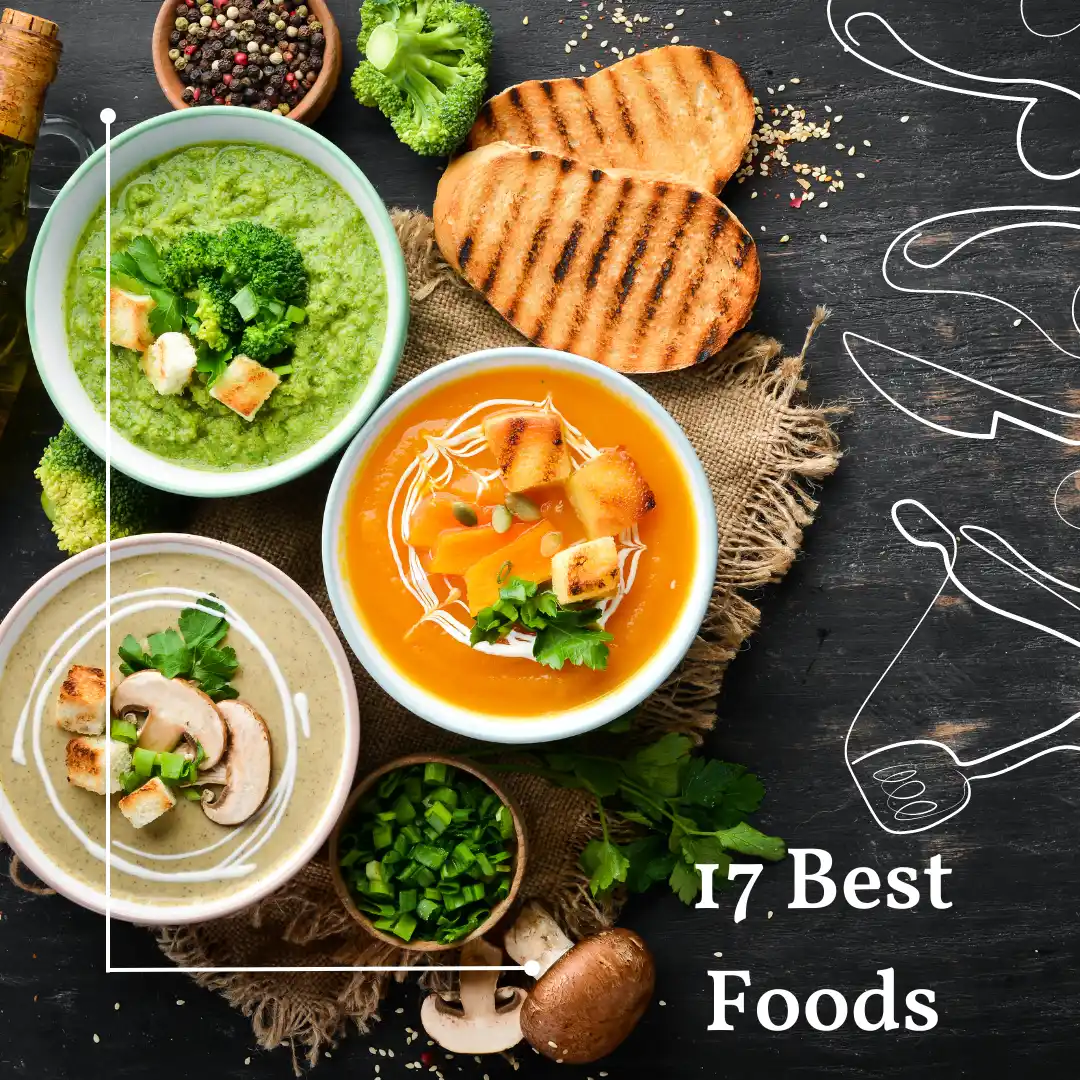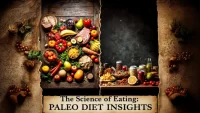Healthy eating is a cornerstone of a vibrant life. Making informed choices about what we consume can significantly impact our overall well-being. In this comprehensive guide, we’ll explore the 17 best foods to include in your diet and 12 treats to enjoy in moderation. This guide will help you navigate the world of nutritious eating while still allowing for those occasional indulgences that make life enjoyable.
The Power of Nutritious Foods
Why Healthy Foods Matter
Eating a diet rich in nutritious foods offers numerous benefits. These foods provide essential vitamins, minerals, and antioxidants that support bodily functions, boost immunity, and reduce the risk of chronic diseases. A well-balanced diet can enhance your energy levels, improve mental clarity, and help maintain a healthy weight.
The 17 Best Foods for Optimal Health
Leafy Greens
Spinach, kale, and Swiss chard are powerhouse vegetables packed with vitamins A, C, and K, and minerals like iron and calcium. These leafy greens are low in calories and high in fiber, aiding in digestion and promoting a healthy weight. Incorporating these vegetables into your diet can improve bone health and reduce the risk of chronic diseases.
Berries
Blueberries, strawberries, and raspberries are not only delicious but also loaded with antioxidants. These small fruits help fight inflammation, improve heart health, and may even enhance brain function. Their high fiber content aids in digestion and helps maintain a healthy gut.
Nuts and Seeds
Almonds, walnuts, chia seeds, and flaxseeds are excellent sources of healthy fats, protein, and fiber. They support heart health, reduce inflammation, and can help maintain stable blood sugar levels. Including a variety of nuts and seeds in your diet can also provide essential nutrients like magnesium and vitamin E.
Whole Grains
Quinoa, brown rice, and oats are rich in fiber and essential nutrients. These whole grains provide sustained energy, aid in digestion, and support a healthy heart. They also help in maintaining a healthy weight and reducing the risk of type 2 diabetes.
Fatty Fish
Salmon, mackerel, and sardines are high in omega-3 fatty acids, which are crucial for brain health and reducing inflammation. Regular consumption can lower the risk of heart disease and improve cognitive function. These fish are also excellent sources of high-quality protein and essential vitamins and minerals.
Legumes
Lentils, chickpeas, and black beans are excellent plant-based sources of protein and fiber. They support digestive health, stabilize blood sugar levels, and can help in weight management. Legumes are also rich in iron and folate, essential for maintaining healthy blood and preventing anemia.
Greek Yogurt
Rich in probiotics, Greek yogurt promotes gut health and is a great source of protein and calcium. It’s a versatile food that can be enjoyed in both savory and sweet dishes. Including Greek yogurt in your diet can enhance digestion, boost the immune system, and support bone health.
Avocados
Avocados are packed with healthy fats, fiber, and various vitamins and minerals. They support heart health, improve digestion, and are excellent for skin health. Avocados can also help in maintaining healthy cholesterol levels and providing sustained energy.
Cruciferous Vegetables
Broccoli, cauliflower, and Brussels sprouts are nutrient-dense vegetables that contain powerful antioxidants. These vegetables support detoxification and may help reduce the risk of cancer. They are also rich in fiber, promoting healthy digestion and weight management.
Eggs
Eggs are a highly nutritious food, providing high-quality protein, vitamins, and minerals. They are beneficial for eye health, brain function, and muscle maintenance. Eggs also contain choline, essential for brain development and function.
Sweet Potatoes
Rich in beta-carotene, sweet potatoes support eye health and boost the immune system. They are also a good source of fiber and complex carbohydrates. Including sweet potatoes in your diet can help regulate blood sugar levels and provide sustained energy.
Tomatoes
Tomatoes are a great source of vitamins C and K, potassium, and folate. They contain lycopene, an antioxidant linked to many health benefits, including reduced risk of heart disease and cancer. Tomatoes also support skin health and improve digestion.
Garlic
Garlic has potent medicinal properties due to its high content of allicin. It boosts the immune system, reduces blood pressure, and improves cholesterol levels. Incorporating garlic into your diet can enhance flavor while providing significant health benefits.
Olive Oil
Extra virgin olive oil is rich in healthy monounsaturated fats and antioxidants. It supports heart health, reduces inflammation, and is beneficial for skin health. Using olive oil as a primary fat source in your diet can improve overall health and longevity.
Dark Chocolate
In moderation, dark chocolate is an excellent source of antioxidants. It can improve heart health, boost brain function, and reduce inflammation. Choosing dark chocolate with a high cocoa content ensures you’re getting the maximum health benefits.
Citrus Fruits
Oranges, lemons, and grapefruits are rich in vitamin C, fiber, and various beneficial plant compounds. They support immune function, improve skin health, and aid in digestion. Including citrus fruits in your diet can also enhance iron absorption and reduce inflammation.
Lean Meats
Chicken, turkey, and lean cuts of beef provide high-quality protein and essential nutrients like iron and zinc. They support muscle growth, immune function, and overall health. Opting for lean cuts and preparing them healthily ensures you get the benefits without excess fat and calories.
Enjoying Treats in Moderation
While it’s crucial to focus on nutritious foods, allowing yourself to enjoy treats in moderation can make a healthy diet more sustainable and enjoyable. Here are 12 treats that can be included in a balanced diet without guilt.
The Importance of Moderation
Moderation is key when it comes to treats. Enjoying small portions of your favorite indulgences can prevent feelings of deprivation and help maintain a balanced relationship with food. This approach ensures you can enjoy treats without compromising your health goals.
12 Treats to Enjoy in Moderation
Ice Cream
Ice cream can be a delightful treat, especially during hot weather. Opt for smaller portions or choose varieties made with natural ingredients to satisfy your sweet tooth without overindulging. Look for options with lower sugar content or those made with milk alternatives for a healthier choice.
Chocolate
While dark chocolate is beneficial, milk chocolate and white chocolate should be enjoyed in moderation due to their higher sugar and fat content. Savor a small piece to satisfy your craving and choose high-quality chocolate to make it worth the indulgence.
Pastries
Croissants, muffins, and donuts are delicious but high in sugar and refined carbohydrates. Enjoy them occasionally and savor every bite. Opt for homemade versions with whole grain flour and less sugar for a healthier treat.
Chips
Potato chips and tortilla chips can be addictive snacks. Choose baked or whole-grain versions and keep portion sizes in check. Pair them with healthy dips like guacamole or hummus to add some nutritional value.
Soda
Sodas are high in sugar and empty calories. Enjoy them sparingly, and consider opting for sparkling water with a splash of fruit juice as a healthier alternative. Limiting soda consumption can help maintain healthy blood sugar levels and prevent weight gain.
Candy
Candy is a concentrated source of sugar. Savor small amounts and choose options made with natural ingredients when possible. Opt for candies with lower sugar content or those made with dark chocolate for a slightly healthier choice.
Cakes and Cookies
Cakes and cookies are classic treats. Enjoy them on special occasions or as occasional indulgences rather than everyday snacks. Baking at home allows you to control the ingredients and reduce sugar and fat content.
Fast Food
Burgers, fries, and fried chicken can be part of a balanced diet if consumed in moderation. Opt for smaller portions and choose healthier menu options when available. Grilled options and salads can be better choices when dining out.
Alcohol
Beer, wine, and cocktails can be enjoyed in moderation. Stick to recommended guidelines and choose lower-sugar options to minimize health risks. Drinking water between alcoholic beverages can help control intake and reduce potential negative effects.
Pizza
Pizza can be a balanced meal if made with whole-grain crust, plenty of vegetables, and moderate amounts of cheese and meat. Enjoy a slice or two rather than overindulging. Making pizza at home allows you to customize it with healthier ingredients.
Pies and Tarts
Fruit pies and tarts are delightful desserts. Enjoy them occasionally and focus on fruit-based options to add some nutritional value. Opt for pies with less added sugar and whole-grain crusts for a healthier version.
Processed Meats
Bacon, sausages, and deli meats can be enjoyed in moderation. Opt for nitrate-free and low-sodium varieties to minimize health risks. Including these meats occasionally can add variety to your diet without compromising health.
Crafting a Balanced Diet
Balancing nutrient-dense foods with occasional treats is the key to
a sustainable and enjoyable diet. Focus on whole, unprocessed foods for the majority of your meals and allow yourself to indulge occasionally without guilt.
Meal Planning Tips
- Include a variety of foods: Aim for a colorful plate with different fruits, vegetables, proteins, and whole grains.
- Portion control: Be mindful of serving sizes to avoid overeating.
- Stay hydrated: Drink plenty of water throughout the day.
- Listen to your body: Pay attention to hunger and fullness cues to prevent overeating.
Incorporating Exercise
Regular physical activity complements a healthy diet. Aim for at least 30 minutes of moderate exercise most days of the week. Activities like walking, cycling, swimming, and strength training are excellent options. Exercise supports overall health, boosts mood, and helps maintain a healthy weight.
Understanding Nutritional Needs
Everyone’s nutritional needs are different. Factors such as age, gender, activity level, and health conditions influence dietary requirements. Consulting with a healthcare professional or a registered dietitian can help tailor a diet plan to meet your specific needs.
The Role of Hydration
Hydration plays a critical role in maintaining overall health. Water is essential for digestion, nutrient absorption, and regulating body temperature. Aim to drink at least eight glasses of water a day, and more if you’re physically active or live in a hot climate.
Mindful Eating
Practicing mindful eating can enhance your relationship with food. Pay attention to your hunger and fullness cues, eat slowly, and savor each bite. This approach can prevent overeating and help you enjoy your food more.
Benefits of Home Cooking
Cooking at home allows you to control the ingredients and portion sizes of your meals. It also encourages the use of fresh, whole foods and can be a fun and rewarding experience. Experiment with new recipes and cooking techniques to make healthy eating enjoyable.
Conclusion
Incorporating the 17 best foods into your diet while enjoying 12 treats in moderation can help you achieve and maintain optimal health. By focusing on nutrient-dense foods and allowing yourself occasional indulgences, you can create a balanced, sustainable, and enjoyable eating pattern. Remember, the key is moderation and variety. A healthy diet is not about deprivation but about making informed choices that support your overall well-being.
FAQs
What are the benefits of eating a balanced diet?
A balanced diet provides essential nutrients, supports overall health, reduces the risk of chronic diseases, and promotes a healthy weight. It can improve energy levels, enhance mental clarity, and boost mood.
How can I enjoy treats without feeling guilty?
Practice moderation, choose smaller portions, and opt for healthier versions of your favorite treats. Enjoy them mindfully and savor each bite. Balance indulgences with nutrient-dense foods to maintain overall health.
What are some tips for portion control?
Use smaller plates, pay attention to serving sizes, eat slowly, and listen to your body’s hunger and fullness cues. Avoid distractions while eating, such as watching TV, to better focus on your food.
How can I incorporate more vegetables into my diet?
Add vegetables to soups, stews, and smoothies, snack on raw veggies with hummus, and include a side salad with meals. Experiment with different cooking methods and seasonings to make vegetables more enjoyable.
Is it okay to eat fast food occasionally?
Yes, fast food can be enjoyed occasionally as part of a balanced diet. Opt for smaller portions and choose healthier menu options when possible. Balancing fast food with nutrient-dense meals at home ensures a healthy diet.











